I was reading a book on PDCA the day before and come across a Japanese web page on thinking cycle of growth.
The page seems to expand on the PDCA cycle to capture other aspects. The result is “four cycles” (四周期 or 考動知循環) and the goal is accumulation of knowledge and know how (智慧和意見的積累), which is assumed to be the key for business success.
These are the four cycles:
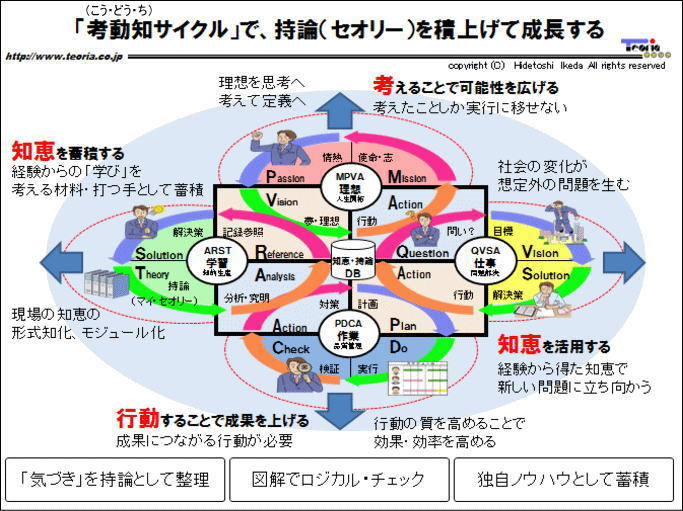
PDCA 質量控制
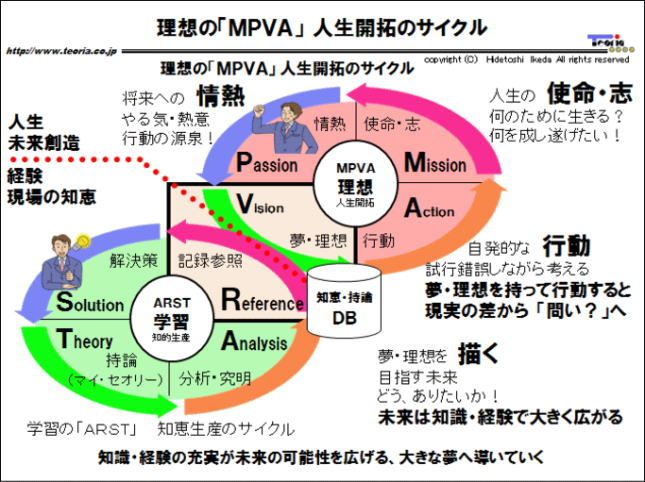
Plan 計劃 / Do 實施 / Check 點檢 / Act 改善
PDCA = 誰人、為何做、何時完成、何種方式、預期結果為何
- 前設要清晰,有相關知識經驗,能設想計劃元素才可發展PDCA
QVSA 解決問題
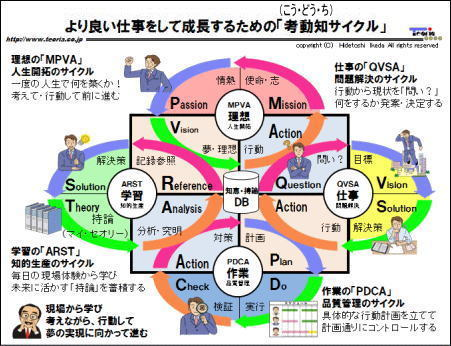
Question 提問 / Vision 設定目標 / Develop a solution 訂立課題 / Action 執行,包括PDCA
QVSA是PDCA的上級概念,功能不同,使用時機亦不同
- 其麼都沒有時用,分析現狀、設定目標、草擬任務
Double-loop learning (Chris Argyris)
- Gather information feedback and change the mental model on which a decision depends
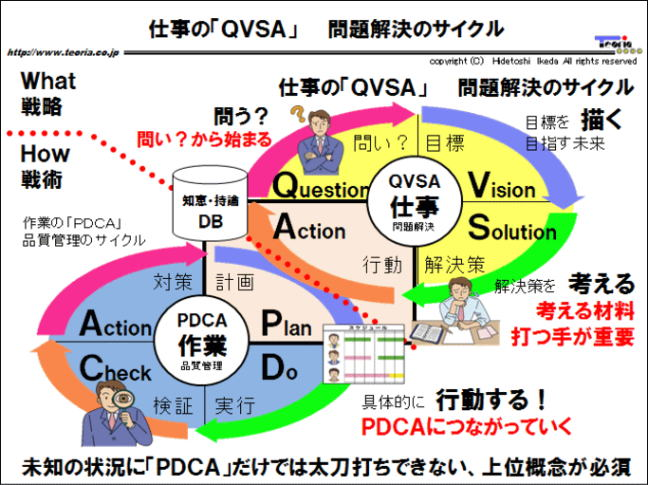
探索問題本質的五個問題:
- 能按計劃進行嗎? (Do)
- 計劃是否正確? (Plan)
- 方法/程序是否合適? (Solution)
- 目標是否正確? (Vision)
- 起點好嗎? (Question)
ARST 知識生產循環
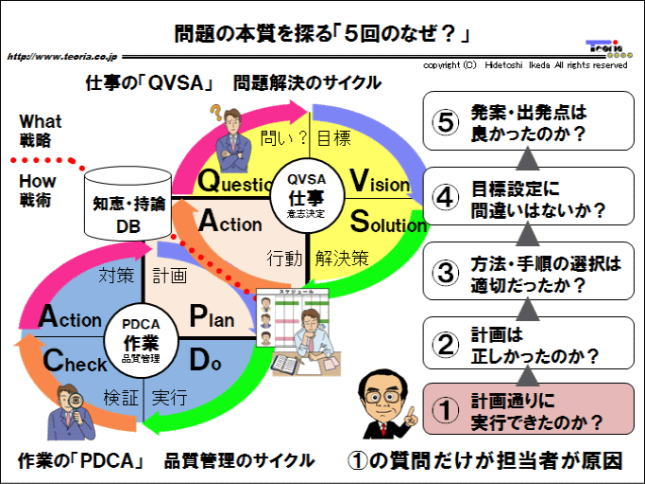
- Analysis 究明
- Reference 記錄參照: 從過去的積累中思考
- Solution 解決策
- Theory 建立理論: 積累新知識
每天發生的問題中,意想不到的只是少數,大部分可以應用過去的經驗。積累知識引發創意,擴大自己的思維範圍,就擴大自己的可能性
MPVA 開發循環
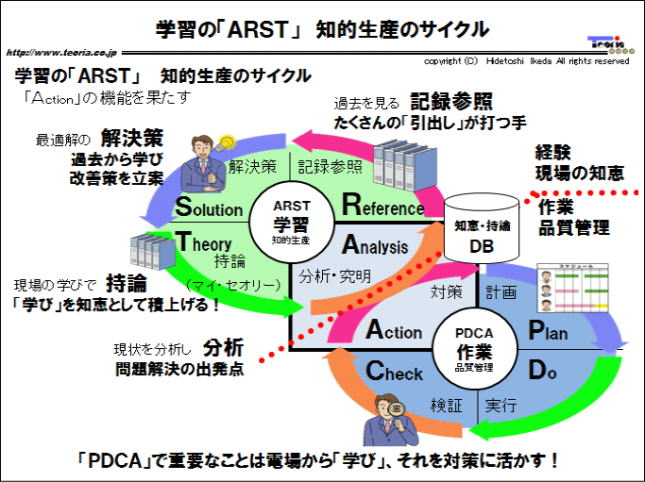
- Mission 使命: 人生的使命
- Passion 熱情
- Vision 理想
- Action 行動: 從自己的行動中學習
從MPVA到QVSA
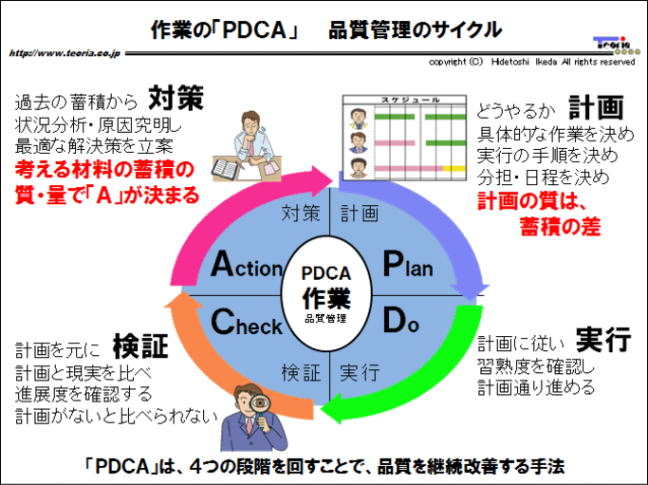
行動中引發新疑問,摧生新的思考周期。過程從現實中積累智慧和知識,拓闊思路,提高解決問題的能力。
積累知識
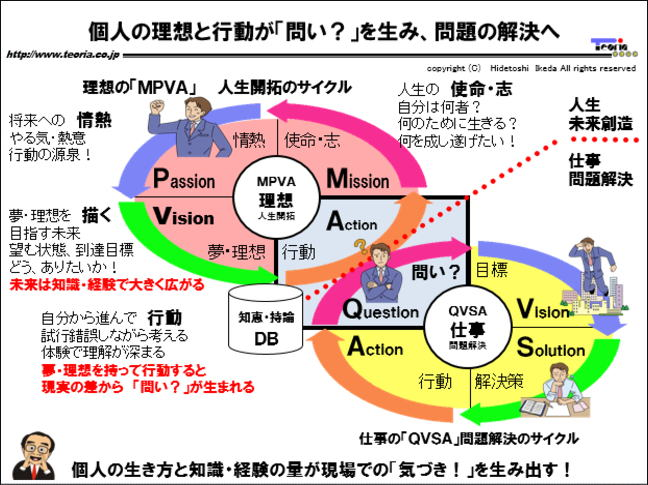
總結:
- MPVA: 通過思考擴大可能性
- PDCA: 通過行動獲取成果